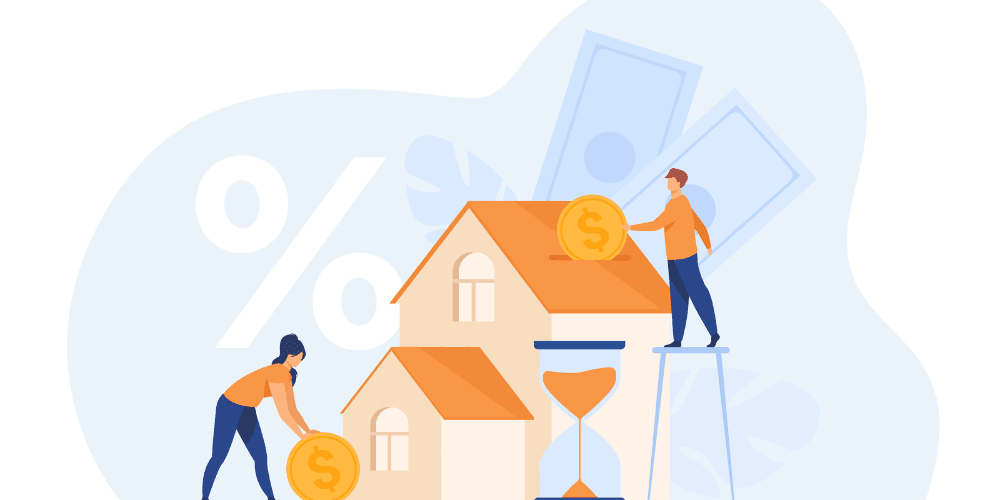Real Estate Investing | Investment Properties | Have a Game Plan | Flipping | Rentals | FAQs
We strive to provide objective, independent advice and reviews. When you decide to use a product or service we link to, we may earn a commission.
Real estate investing can be very lucrative. In 2019, U.S. house flippers earned an average gross profit of over $70,000 per property, according to ATTOM Data Solutions.
The average home seller realized a profit of $94,092 on the typical sale in 2021, up 45% from $64,931 in 2020 and up 71% from $55,000 two years ago, according to an analysis published by ATTOM Data Solutions.
TV shows make it look easy, but real estate investing is hard work. Before you decide to take the plunge, take time to educate yourself about the process.
And when you’re ready to invest in a rental property, consider our partner DealMachine, a leading real estate investing and wholesaling software that can help you scale your business. It connects you to accurate data on foreclosures and county records, provides direct contact information to property owners, and helps you to help you identify and track investment opportunities.
What Is Real Estate Investing?
Real estate investing is using the purchase, ownership, management, rental or sale of property to make a profit. The success of real estate investing is based on the idea that the property will appreciate, or increase in value over time.
What Is an Investment Property?
An investment property is one you purchase to generate income by renting it or selling it in the future at a higher price than when you bought it.
Types of Investment Property
There are four types of investment properties: residential, commercial, industrial and land. And there are pros and cons to each investment.
Residential properties include single-family homes, multi-family homes, mobile homes, townhouses, and condos. If you can rent these properties for more than your monthly holding expenses (mortgage, taxes, etc.), you’ll make a profit.
Commercial real estate is any property used for retail or office space. Investors buy these properties and rent them to business owners who need space to run their companies or buy and sell goods and services. Commercial tenants tend to be more stable, so steady income is more likely.
Industrial properties typically include buildings used by companies for the manufacturing, warehousing, and distribution of their product. The benefit of renting industrial properties is that they can often be rented at higher rates than residential ones. And the turnover rates for tenants is lower.
Finally, you can invest in land, which can produce healthy returns, but can be risky. Buying raw land — unless it’s farmland — means you’ll be paying taxes on a property that’s not generating income. And, you’ll need to deal with zoning issues (how you’ll use the land), environmental issues, gaining access to utilities, and other complexities.
Step 1: Come Up With a Game Plan
If you want to successfully invest in real estate, you’ll first need to learn the business. Make sure you understand the risks and that you’re ready to take on the big financial and time commitment required.
It’s a good idea to lay out a multi-year plan that outlines your short- and long-term goals, overall budget and primary investment strategy. Then, you can start researching specifics.
This includes figuring out what type of property you want to invest in, the best financing sources, which neighborhoods you want to invest in, and so on.
Our team of real estate researchers have analyzed a wide variety of real estate investment strategies to help you get started:
- How to Flip a House With No Money
- Are Condos a Good Investment?
- How Do Appraisers Determine Value?
- California Real Estate Market Trends (2022)
- 6 Must Know Property Metrics for Investors
- How to Find Distressed Properties to Flip For a Solid Profit
With a well-developed plan in place, you’ll greatly increase your chances of real estate investing success.
Step 2: Decide Whether You Want to Flip Houses
Flipping houses is the strategy of choice for many investors, but it’s not necessarily the best starting point for a beginner. While it can be (and often is) profitable, there are also lots of risks involved.
Step 3: Research the Best Cities for Rental Property
Quick flips with big returns are obviously attractive, but long-term rental units can provide consistent returns for years. You benefit from consistent income as well as any appreciation that builds on the property. If the market peaks, you have the option to sell and reap the profits.
Top 10 Metro Areas With Fastest-Rising Rents Year Over Year
Rental Property Statistics (2022)
Rent increases tapered off in June 2022, with the national median asking rent rising 14% from a year earlier—the smallest annual increase since October.
Asking rents were up 0.7% from May, the smallest month-over-month gain since the start of the year.
“This slowdown in rent increases is likely to continue, however rents are still climbing at unprecedented rates in strong job markets like New York and Seattle and in areas like San Antonio and Austin that soared in popularity during the pandemic,” according to Redfin chief economist Daryl Fairweather.
The bottom line is, if you do your homework, and have a financial cushion to cover any unexpected bumps along the way, you CAN become a successful real estate investor.
Recommended Reading
FAQs About Real Estate Investing
What is real estate investing?
Real estate investing is using the purchase, ownership, management, rental or sale of property to make a profit. Learn more about real estate investing.
What is an investment property?
An investment property is a property you purchase to generate income by renting or flipping it. Learn more about investment properties.



